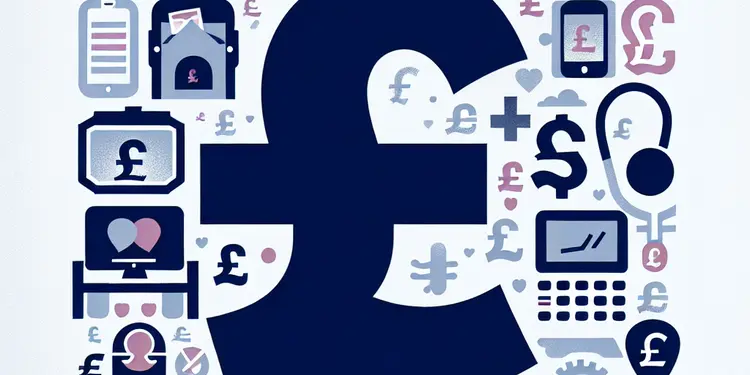
Find Help
More Items From Ergsy search
-
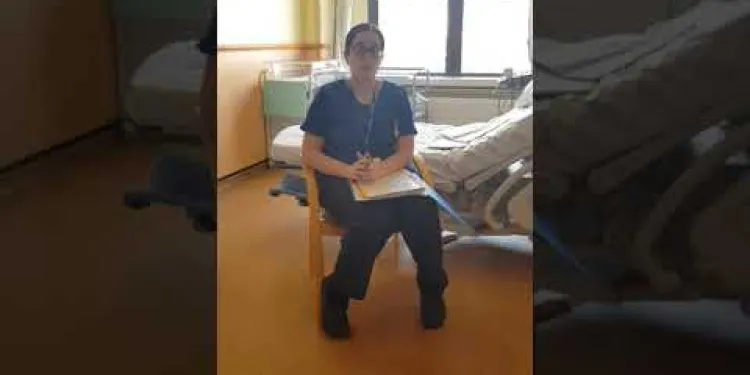
Postnatal Depression
Relevance: 100%
-
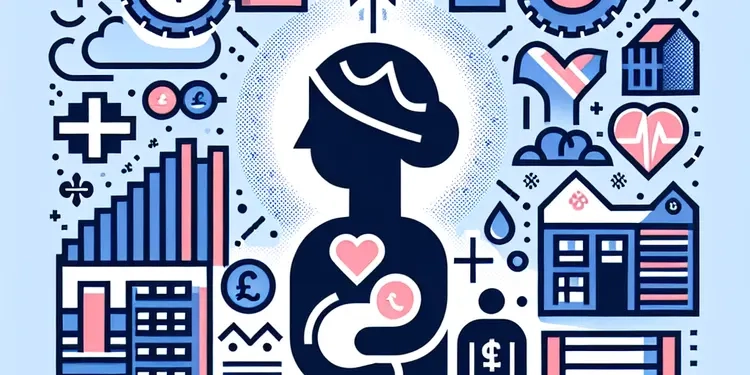
What is postnatal depression?
Relevance: 96%
-
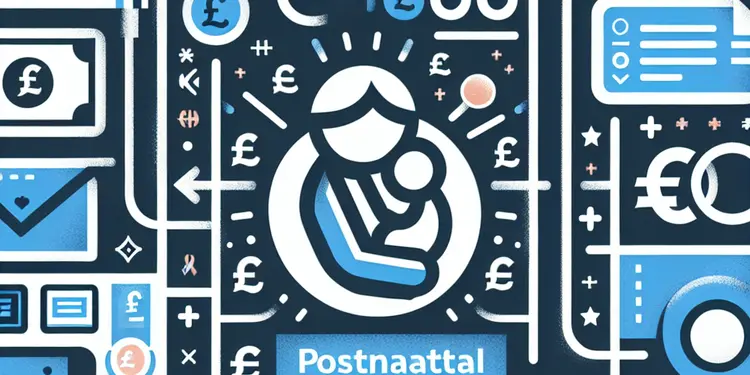
Is postnatal depression preventable?
Relevance: 93%
-
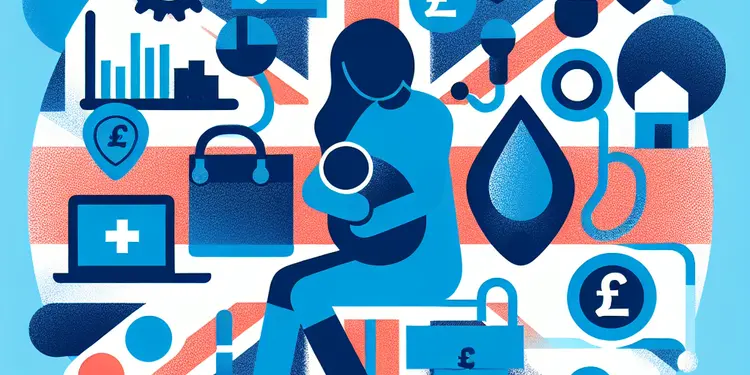
How is postnatal depression diagnosed?
Relevance: 92%
-

What causes postnatal depression?
Relevance: 92%
-
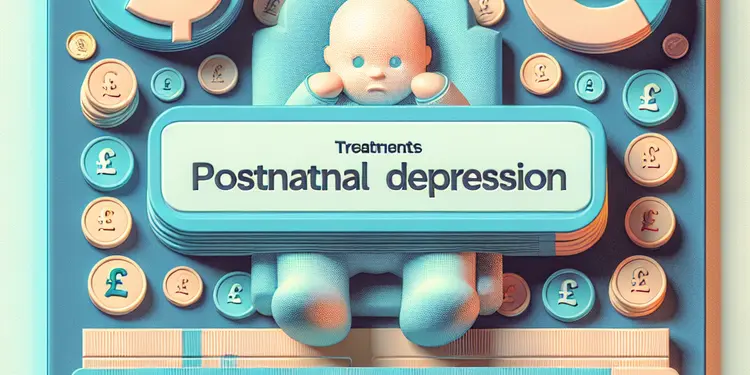
Are there treatments available for postnatal depression?
Relevance: 92%
-
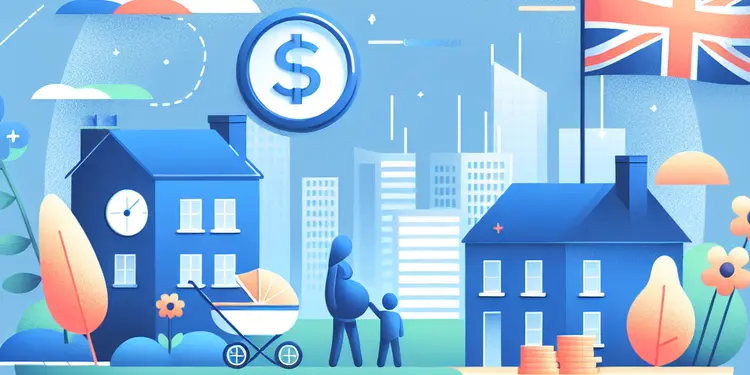
Is postnatal depression a long-term condition?
Relevance: 92%
-

Postnatal Depression - Leanne's Story
Relevance: 91%
-
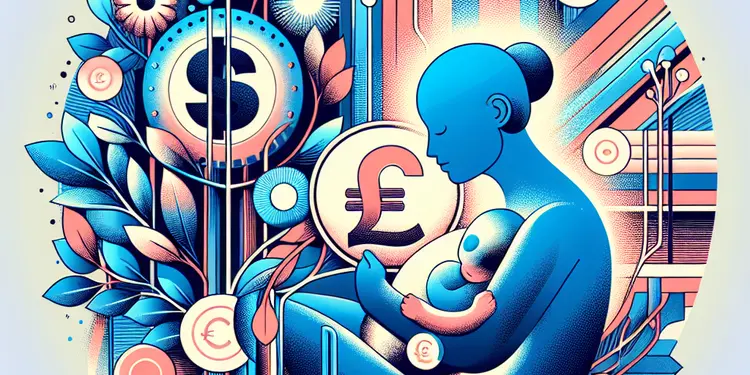
What are the symptoms of postnatal depression?
Relevance: 91%
-
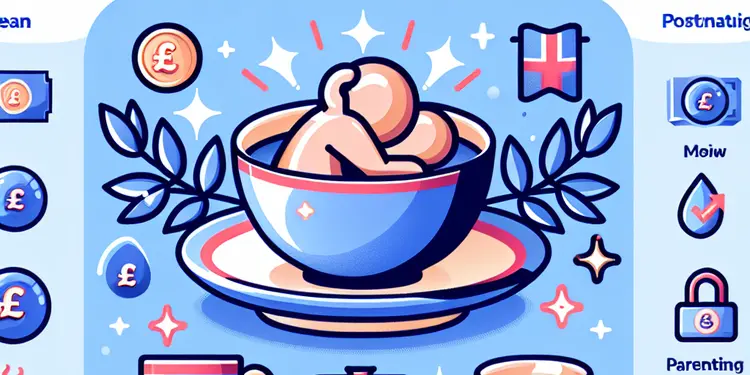
Are there support groups for postnatal depression?
Relevance: 89%
-

Can fathers experience postnatal depression?
Relevance: 88%
-
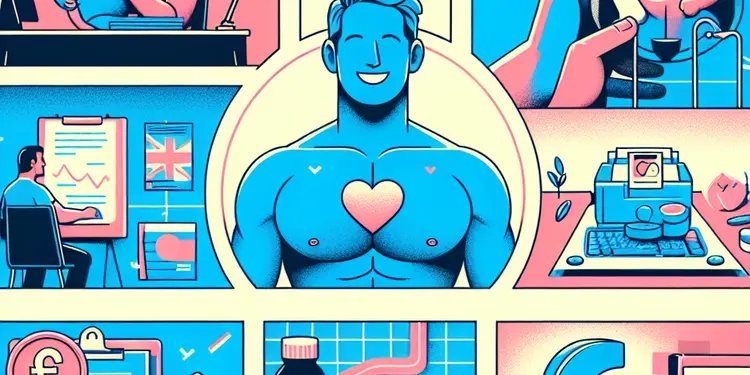
Is medication necessary for treating postnatal depression?
Relevance: 87%
-
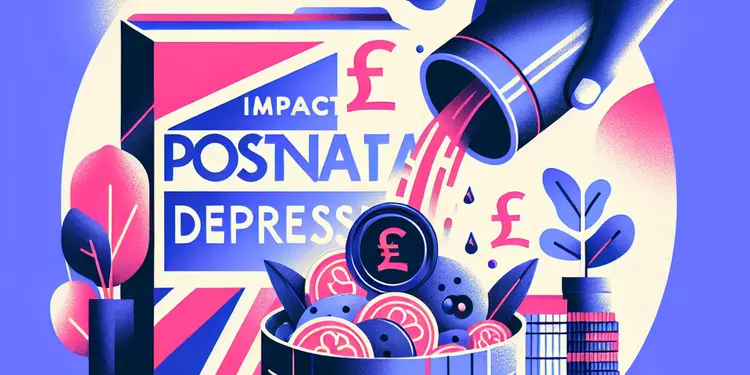
Can diet impact postnatal depression?
Relevance: 86%
-
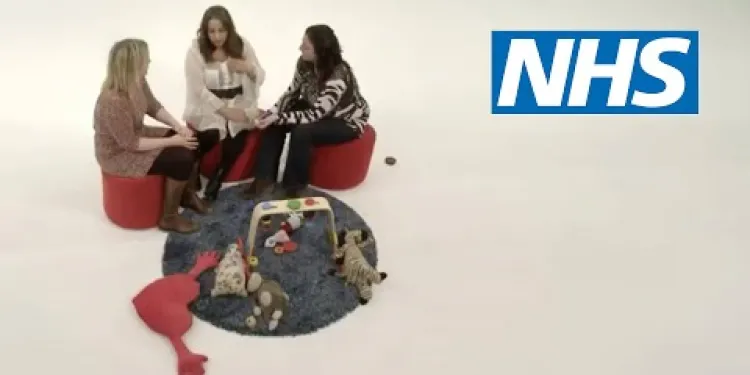
How do I know if I have postnatal depression? | NHS
Relevance: 85%
-
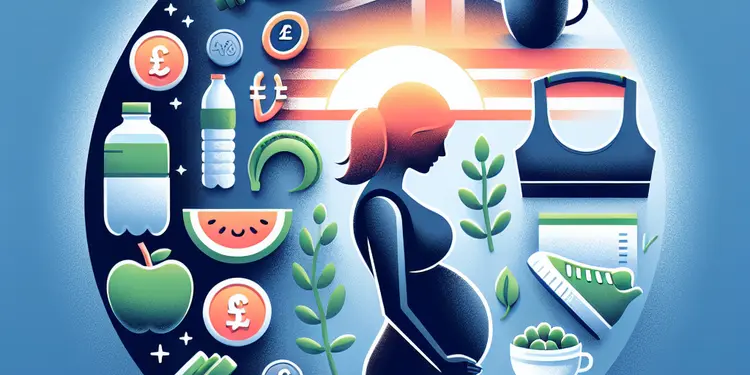
Can lifestyle changes help with postnatal depression?
Relevance: 85%
-
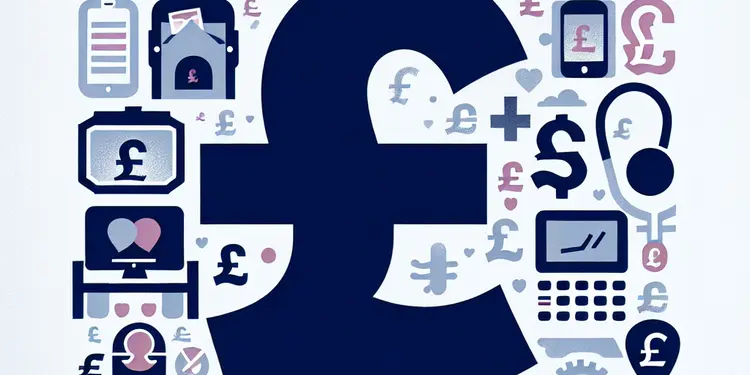
What should I do if I suspect I have postnatal depression?
Relevance: 85%
-
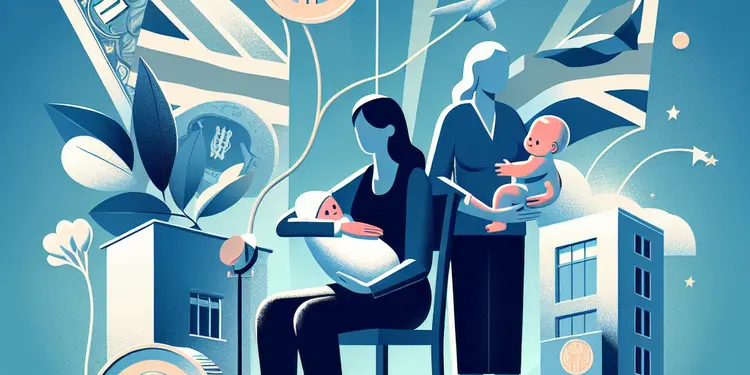
Can postnatal depression recur after treatment?
Relevance: 84%
-

Can postnatal depression affect subsequent pregnancies?
Relevance: 84%
-

Should someone with postnatal depression seek professional help?
Relevance: 82%
-
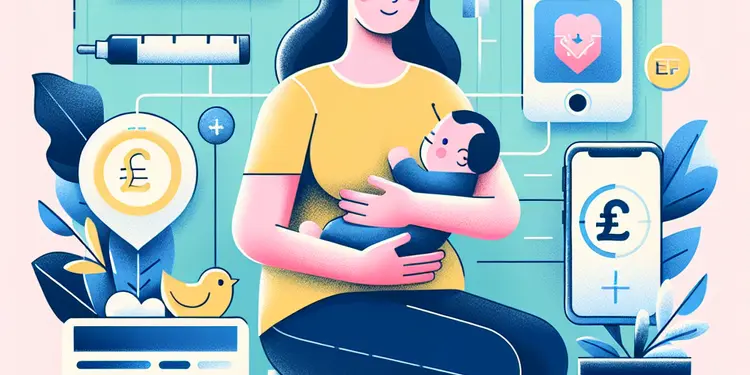
How is postnatal depression different from the 'baby blues'?
Relevance: 82%
-
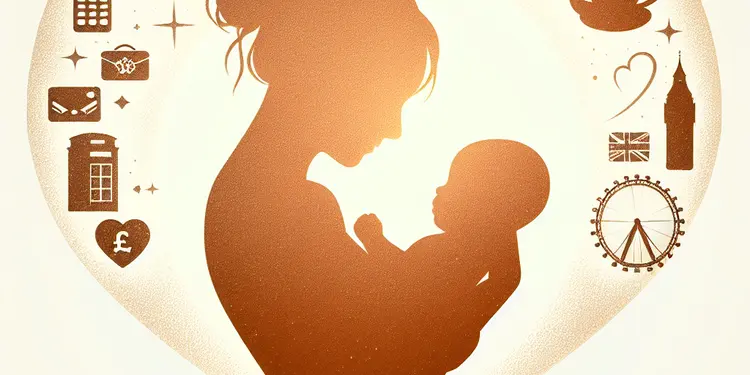
How does postnatal depression affect bonding with the baby?
Relevance: 81%
-
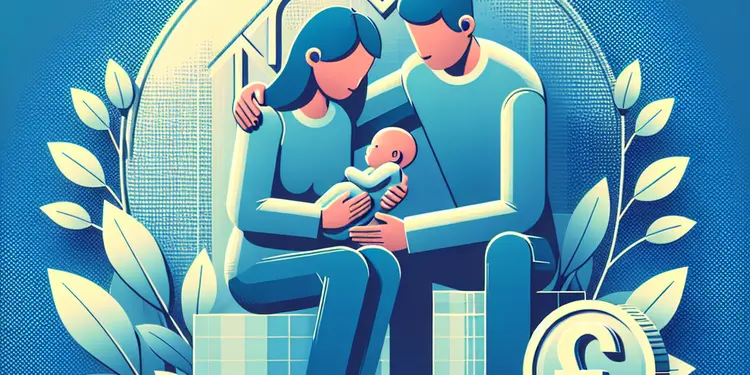
How can family members support someone with postnatal depression?
Relevance: 75%
-
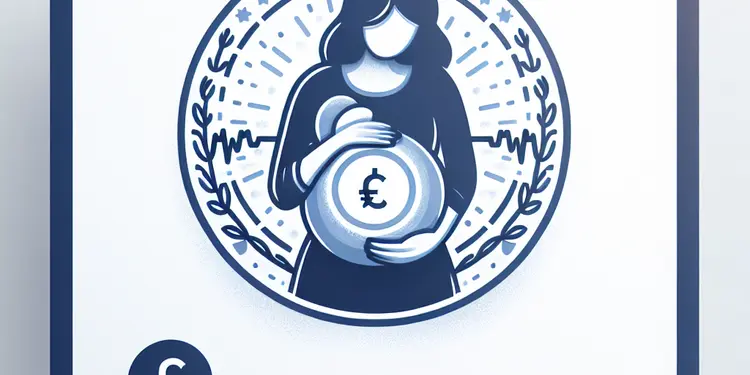
How soon after childbirth can postnatal depression occur?
Relevance: 57%
-

Treating anxiety and depression - www.slam.nhs.uk
Relevance: 39%
-
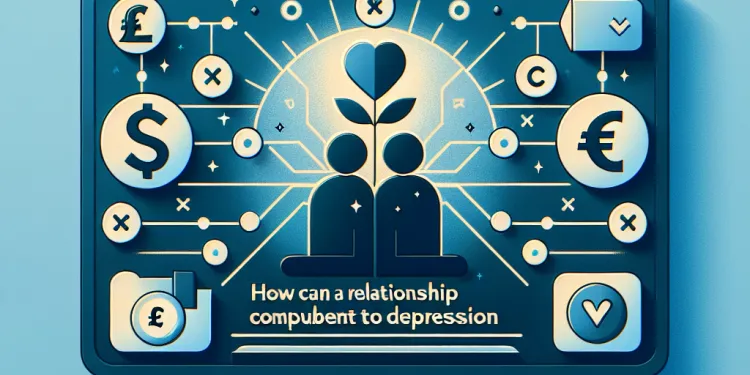
How can a relationship contribute to depression?
Relevance: 38%
-
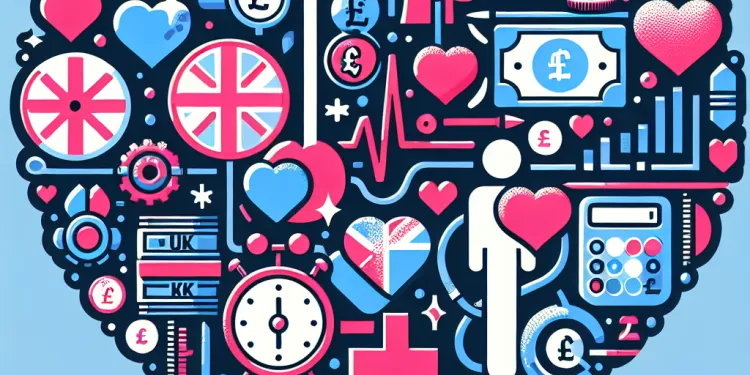
What are the signs that my relationship is making me depressed?
Relevance: 38%
-
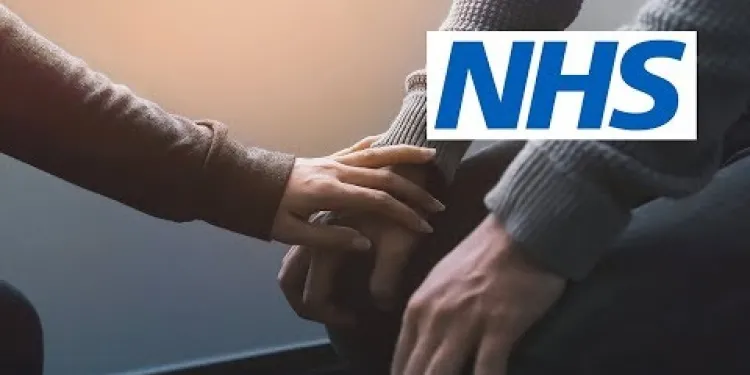
Clinical depression: Lawrence's story | NHS
Relevance: 37%
-

Can physical symptoms be linked to relationship-induced depression?
Relevance: 36%
-
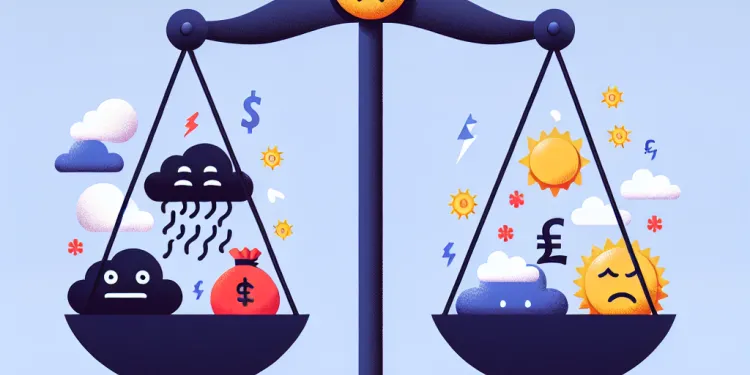
What role do unhealthy dynamics play in causing depression?
Relevance: 36%
-
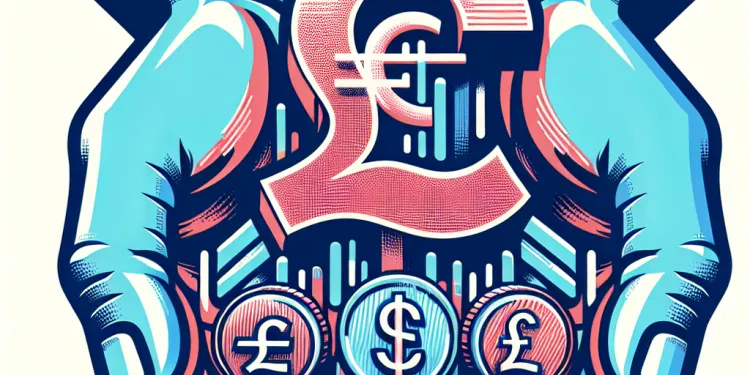
Are there any self-care strategies to cope with relationship-induced depression?
Relevance: 35%
-
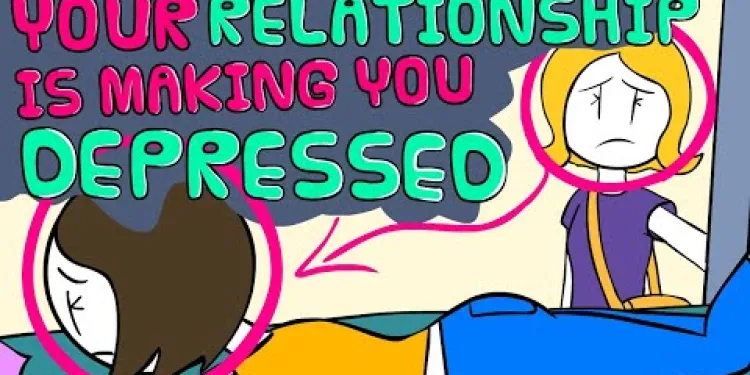
7 Signs Your Relationship is Making You Depressed
Relevance: 35%
-
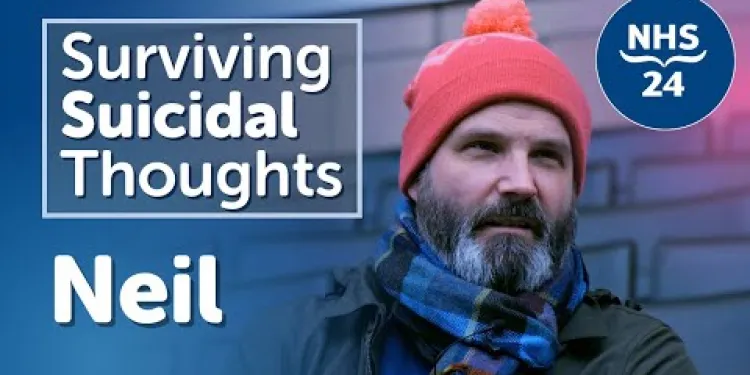
I couldn't celebrate Hibs beating Hearts because I was that depressed
Relevance: 34%
-
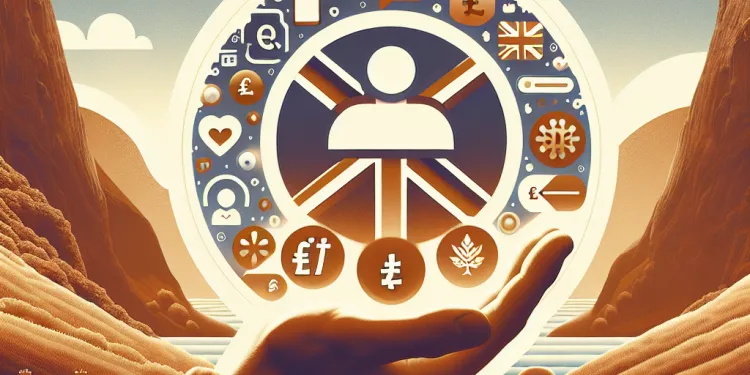
What should I do if my partner dismisses my feelings of depression?
Relevance: 32%
-
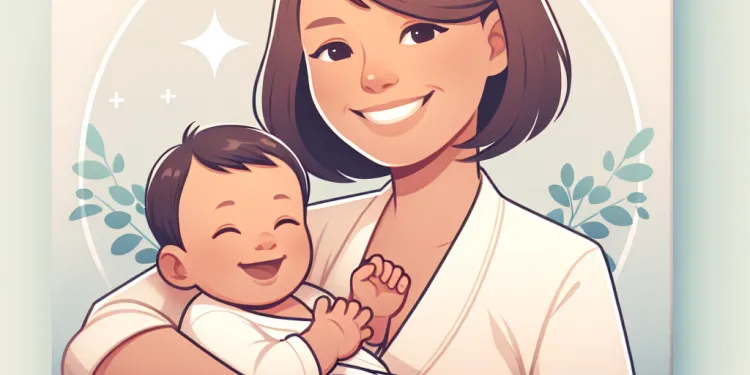
Postpartum Health: Mother and Baby
Relevance: 28%
-

How quickly can ketamine alleviate depression symptoms?
Relevance: 25%
-
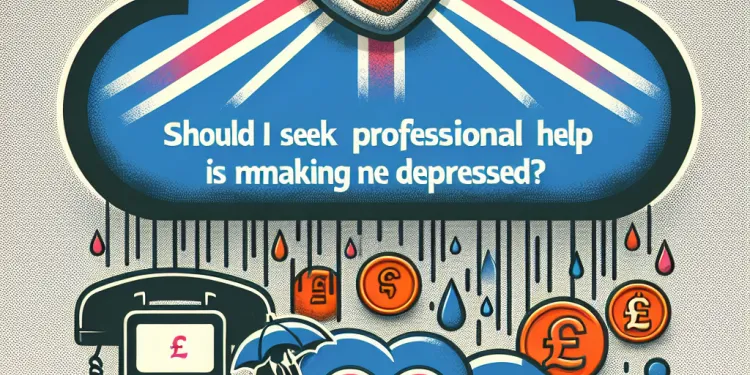
Should I seek professional help if my relationship is making me depressed?
Relevance: 25%
-

Can ketamine be used to treat major depressive disorder?
Relevance: 17%
-
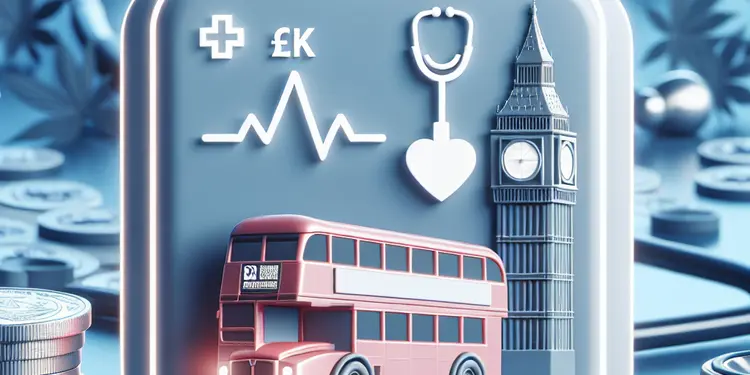
Are there any legal uses for ketamine?
Relevance: 17%
-

How is ketamine different from traditional antidepressants?
Relevance: 16%
-
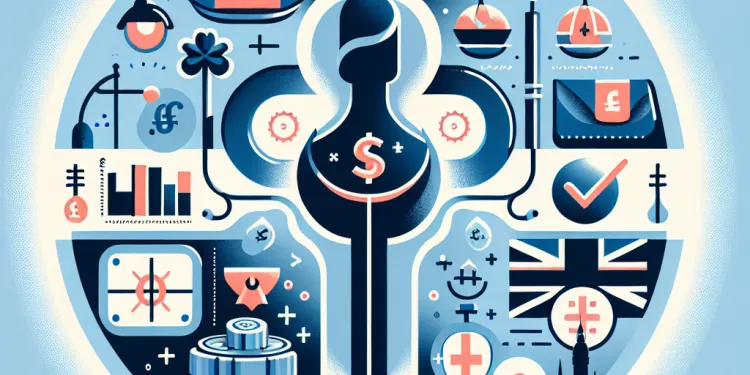
How long does it take to recover from a Caesarean birth?
Relevance: 16%
Understanding Postnatal Depression
Postnatal depression is a common condition that affects many new parents in the UK. It is crucial to understand that experiencing postnatal depression is not a sign of weakness or something to feel ashamed about. Rather, it is a significant mental health condition that can be addressed with the right support and treatment.
Recognising the Signs
First, it is essential to recognise the signs of postnatal depression. Symptoms may include persistent sadness, lack of energy, difficulty bonding with your baby, withdrawing from other people, and experiencing frightening thoughts. If you notice these symptoms persist beyond the first couple of weeks postpartum or they become more intense, it may be time to seek help.
Reach Out for Support
If you suspect you have postnatal depression, contacting your GP is a crucial first step. They can provide an assessment and discuss potential treatments, including counselling, therapy, or medication if necessary. Health visitors can also be a valuable resource as they are trained to support new parents with mental health concerns.
Talk to Loved Ones
Sharing your concerns with a trusted friend, partner, or family member can be immensely beneficial. It is important to communicate your feelings and get emotional and practical support from those around you. They can assist in looking after your baby and help you find time for yourself to rest and recuperate.
Connect with Support Groups
Connecting with other parents who have experienced postnatal depression can be reassuring. Many local and online groups provide a platform to share experiences and coping strategies. Organisations like PANDAS Foundation offer support groups, a helpline, and resources for anyone affected by postnatal depression in the UK.
Prioritise Self-Care
Practicing self-care is vital. Ensure you are eating well, staying hydrated, and resting whenever possible. Engaging in gentle physical activities, such as walking or yoga, can also positively impact your mood. Finding time to relax and participating in enjoyable activities can help improve your well-being.
Consider Professional Therapy
Professional therapy can be an effective treatment for postnatal depression. Cognitive Behavioural Therapy (CBT) is commonly recommended for managing symptoms and developing coping strategies. Your GP can refer you to a therapist, or you may access services through charities and mental health organisations.
Acknowledge Your Progress
Remember, recovery from postnatal depression takes time. It is essential to acknowledge any progress you make, no matter how small. Celebrating these achievements can help maintain a positive outlook and encourage further recovery.
Conclusion
If you suspect you have postnatal depression, reaching out for help is the most important step you can take. With the right support, you can manage your symptoms and move towards recovery. You are not alone; help is available in many forms, from professional medical advice to community support. Prioritising your mental health is vital for both you and your baby’s well-being.
Understanding Postnatal Depression
Postnatal depression means feeling very sad after having a baby. Many new parents in the UK feel this way. It’s important to know that feeling this way is not your fault. It is a serious health problem that can be helped with support and treatment.
Recognising the Signs
Look out for signs of postnatal depression. You might feel very sad all the time, tired, find it hard to love your baby, avoid other people, or have scary thoughts. If these feelings last more than a few weeks or get worse, it’s time to get help.
Reach Out for Support
If you think you have postnatal depression, talk to your doctor. They can help you understand your feelings and talk about ways to feel better, like talking to a therapist or taking medicine. Nurses who visit you and your baby can also offer support and advice.
Talk to Loved Ones
Tell someone you trust about how you feel, like a friend or family member. Sharing your feelings can help. They can also help take care of your baby so you can relax and rest.
Connect with Support Groups
Talking to other parents who have had postnatal depression can make you feel better. There are local and online groups where you can share your feelings and learn from others. The PANDAS Foundation is a group that helps people with postnatal depression in the UK. They have support groups and a helpline.
Prioritise Self-Care
Looking after yourself is important. Eat healthy food, drink plenty of water, and rest when you can. Gentle exercises like walking or yoga can lift your mood. Do things you enjoy to help you feel better.
Consider Professional Therapy
Talking to a therapist can really help with postnatal depression. There is a type of therapy called Cognitive Behavioural Therapy (CBT) that can help you feel better. Your doctor can help you find a therapist, or you can look for help from charities and other groups.
Acknowledge Your Progress
Remember, getting better takes time. Celebrate any little improvements you make. This will help you stay positive and keep moving forward.
Conclusion
If you think you might have postnatal depression, getting help is the best thing to do. With the right support, you can start to feel better. You are not alone, and there are many people and groups who want to help you. Taking care of your mental health is important for you and your baby.
Frequently Asked Questions
What should I do if I suspect I have postnatal depression?
If you suspect you have postnatal depression, the first step is to reach out to a healthcare professional, such as your GP or midwife, for a proper assessment and support.
How can I talk to my doctor about postnatal depression?
Be open and honest with your doctor about your feelings, symptoms, and any concerns. It's important to give them a full picture to get the right help.
What are the symptoms of postnatal depression?
Symptoms can include persistent sadness, lack of energy, difficulty bonding with your baby, changes in appetite or sleep, and feelings of worthlessness or guilt.
How is postnatal depression diagnosed?
A healthcare provider may use questionnaires and conduct interviews to assess your symptoms and determine if you have postnatal depression.
What treatments are available for postnatal depression?
Treatments can include therapy, medication, support groups, and self-care practices. Your healthcare provider can help determine the best course for you.
Can postnatal depression affect fathers?
Yes, postnatal depression can also affect fathers and partners, and they should seek support if experiencing symptoms.
Is postnatal depression common?
Postnatal depression is common and affects many new parents. It's important to know you are not alone and help is available.
Can I prevent postnatal depression?
While you can't always prevent it, maintaining a strong support network and managing stress levels can help reduce the risk.
How long does postnatal depression last?
The duration varies, but with treatment, many people start feeling better within a few months. Without treatment, it can last longer.
Can I still breastfeed if I'm taking medication for postnatal depression?
Many medications are considered safe during breastfeeding, but it is essential to discuss this with your doctor to ensure the best option for you and your baby.
How can I support my partner who has postnatal depression?
Offer emotional support, help with baby care and household duties, and encourage them to seek professional help.
What is the difference between postnatal depression and baby blues?
Baby blues are short-lived feelings of sadness that occur shortly after birth, while postnatal depression is more severe and lasts longer.
Are there support groups for people with postnatal depression?
Yes, there are many support groups and online communities that offer peer support for those experiencing postnatal depression.
Will I get postnatal depression again with future pregnancies?
Having postnatal depression once can increase the risk, but it doesn’t guarantee it will happen again. Discuss concerns with your healthcare provider for proactive measures.
Can therapy help with postnatal depression?
Therapy, such as cognitive-behavioral therapy (CBT), can be very effective in treating postnatal depression.
What self-care strategies can help with postnatal depression?
Regular exercise, rest, healthy eating, and connecting with loved ones can support recovery from postnatal depression.
What should I do if I feel overwhelmed and unsafe with my baby?
Seek immediate help from a healthcare professional, helpline, or emergency service if you feel overwhelmed or unsafe.
What are some resources for learning more about postnatal depression?
Resources include your healthcare provider, mental health organizations, online articles, and parenting support groups.
How can exercise help with postnatal depression?
Exercise releases endorphins and can improve mood, reduce stress, and boost overall mental well-being.
Should I tell friends and family about my postnatal depression?
Deciding who to tell is personal, but sharing with trusted friends or family can provide additional support and understanding.
What should I do if I think I have postnatal depression?
If you feel sad or worried after having a baby, you might have postnatal depression. Here are some easy steps you can take:
- Talk to Someone: Tell a family member or a friend how you feel.
- Visit a Doctor: A doctor can help you understand your feelings and suggest what to do.
- Look for Support Groups: There are groups where you can meet other parents who feel the same.
Remember, it is okay to ask for help. You are not alone.
If you think you might have postnatal depression, the first thing to do is talk to a doctor or a midwife. They can check how you are feeling and help you get the support you need.
How can I talk to my doctor about feeling sad after having a baby?
It is okay to feel sad or worried after having a baby. If you feel this way, talk to your doctor. Here are some easy steps to help you:
- Plan: Write down your feelings and questions before you see the doctor. This can help you remember what to say.
- Be Honest: Tell the doctor exactly how you feel, even if it's hard.
- Ask Questions: Don't be shy. Ask the doctor about anything you don't understand.
- Bring Support: Take a friend or family member with you if it makes you feel better.
Remember, your doctor is there to help you feel better. Talking about your feelings is important.
Talk to your doctor. Tell them how you feel, what hurts, and anything you are worried about. It's important they know everything so they can help you best.
What are the signs of feeling very sad after having a baby?
After having a baby, some mums feel very sad, worried, or tired. This is called postnatal depression. Here are some signs that a mum might have it:
- Feeling very sad or crying a lot
- Not wanting to do things they used to enjoy
- Feeling really tired all the time
- Having trouble sleeping, even when the baby sleeps
- Feeling worried or scared a lot
- Not feeling close to the baby
If you or someone you know feels like this, it's important to talk to a doctor or nurse. They can help.
Signs you might notice:
- Feeling sad for a long time
- Always feeling tired
- Finding it hard to feel close to your baby
- Eating too much or not enough
- Sleeping too much or not enough
- Feeling like you are not good enough or feeling guilty
If you feel this way, talk to someone you trust. You can also use tools like writing in a diary, using apps that help with feelings, or talking to a doctor or therapist for support.
How do doctors find out if someone has postnatal depression?
Your doctor or healthcare worker might ask you questions about how you feel. They do this to see if you might have postnatal depression.
What help can you get for feeling sad after having a baby?
Sometimes, new mums feel sad after having a baby. This is called postnatal depression. But don't worry, there are ways to help you feel better!
- Talking to someone: It's good to talk to a doctor or a special talking helper (therapist). They listen and help you feel better.
- Medicine: Sometimes, doctors give a bit of medicine to help mums feel happy again. Always ask your doctor before taking any medicine.
- Joining a group: Meeting other mums who feel the same can help too. You can share stories and tips on feeling better.
- Rest and relax: Try to rest when the baby sleeps. Doing something fun like reading or listening to music can also help you feel good.
Remember, it's okay to ask for help. You are not alone, and many people want to help you feel better!
Treatment can help you feel better. This can include talking to a therapist, taking medicine, joining a support group, and taking care of yourself. Your doctor can help you find the best way to feel better.
Can dads feel sad after a baby is born?
Yes, dads can feel sad after their baby is born. This is called postnatal depression. It can make you feel tired, worried, or upset.
If you are feeling this way, it is important to talk to someone. You can speak to a doctor or a counselor. Sharing how you feel can help.
Try to get plenty of rest, eat healthy food, and do a little exercise. This can help you feel better. Talking to family or friends can also help.
Yes, dads and partners can feel sad after a baby is born too. They should ask for help if they feel this way.
Do many people get sad after having a baby?
Yes, some parents feel very sad after a baby is born. This is called postnatal depression.
If you feel this way, you are not alone. Many people have these feelings.
Ways to feel better:
- Talk to someone you trust, like a friend or family member.
- Visit a doctor or nurse. They can help you.
- Try to rest when you can. Sleep is important.
Many new parents feel sad after having a baby. This is called postnatal depression. Lots of people feel this way, so you are not alone. There is help for you.
How can I stop feeling sad after having a baby?
You can't always stop it, but having good friends and family around you and keeping calm can help make it less likely.
How long does sadness after having a baby last?
When a mom feels sad after having a baby, it is called postnatal depression. This sadness can last for a short time or a long time. Every mom is different.
Some moms feel better in a few weeks. For others, it might take months. It is important to talk to a doctor or nurse who can help.
If you feel sad, here are some things that might help:
- Talk to someone you trust, like a family member or friend.
- Try to rest when you can.
- Ask for help with the baby or housework.
- Spend time doing something you enjoy, even if it’s just a little bit each day.
Remember, you are not alone, and people can help you feel better.
How long it takes can change. With help, many people feel better in a few months. Without help, it can take more time to feel better.
Can I breastfeed if I take medicine for postnatal depression?
If you feel sad or worried after having a baby, this is called postnatal depression. Doctors can give you medicine to help you feel better.
You might wonder if you can still feed your baby from your breast when you take this medicine. Talk to your doctor about it. Your doctor knows what medicine is safe for you and your baby.
Here are some things that can help:
- Ask your doctor questions.
- Tell your doctor how you feel.
- Use a diary to track how you feel every day.
Your health is important for both you and your baby.
Some medicines are safe to take when breastfeeding. But it's important to talk to your doctor. They can help you choose the best medicine for you and your baby.
How can I help my partner who feels very sad after having a baby?
After having a baby, some mothers feel very sad. This is called postnatal depression. Here are some ways you can help your partner:
- Listen to her. Let her talk about her feelings.
- Tell her it is okay to feel this way.
- Help her see a doctor or therapist who can help.
- Take care of the baby sometimes so she can rest.
- Do small, kind things for her, like making her a nice meal.
Remember, she needs love and support. It is important for her to know you are there for her. You can also look for support groups or talk to other families who have gone through this. They can give you advice and help.
Be there for them with love and support. Help take care of the baby and do chores in the house. Tell them it’s okay to ask a doctor or someone who knows how to help.
What is the difference between feeling sad after having a baby and postnatal depression?
After a baby is born, some parents feel sad or moody. This is called "baby blues" and it usually goes away in a few days.
Postnatal depression is when these sad feelings last longer, and are much stronger. It can make it hard to do everyday things and can last for weeks or months.
If you or someone you know is feeling very sad after having a baby, talk to a doctor or someone you trust. They can help.
It can be helpful to write down your feelings, talk to friends or family, and take deep breaths to relax. Reading short sentences and using pictures can help understand the difference.
Baby blues are feelings of sadness that happen soon after a baby is born. They usually don’t last very long. Postnatal depression is when these sad feelings are stronger and last a lot longer.
Can new parents get help if they feel sad?
Yes, there are groups that can help moms and dads who feel sad after having a baby. These groups are called support groups.
Support groups are places where you can talk to others who feel the same way. You can share your feelings and listen to others. This can help you feel better.
Here are some helpful things to try:
- Talk to a doctor or nurse. They can help you find a support group.
- Look for online support groups. You can chat with people from your home.
- Tell a friend or family member how you feel. They can go with you to a group or help you find one.
Remember, it's okay to ask for help. You are not alone.
Yes, there are groups and online places where you can talk to others. They can help if you feel sad after having a baby.
Can I get sad again after having another baby?
If you had postnatal depression before, you might get it again, but not always. Talk to your doctor or nurse about your worries. They can help you feel better.
Can talking to someone help with feeling sad after having a baby?
Talking therapy, like a special kind called CBT, can really help new mums who feel very sad after having a baby.
How can you take care of yourself if you feel sad after having a baby?
Having a baby is a big change. Sometimes, new moms feel very sad. This is called postnatal depression. Here are some ways to feel better:
- Talk to someone: Tell a friend or family member how you feel. Talking can help.
- Rest: Try to sleep when your baby sleeps. Rest helps you feel better.
- Eat healthy food: Eat fruits, vegetables, and healthy snacks. Healthy food gives you energy.
- Go outside: A short walk in fresh air can lift your mood.
- Ask for help: It’s okay to ask for help with your baby. Others can help change diapers or give the baby a bath.
If you still feel very sad, it is important to see a doctor. They can help you feel better. You are not alone, and many moms feel this way.
Doing exercise, getting enough sleep, eating good food, and spending time with family and friends can help you feel better after having a baby.
What can I do if I feel scared or worried with my baby?
If you feel really upset or not safe, talk to a doctor, call a help phone number, or contact emergency services right away.
Where can you learn about feeling sad after having a baby?
If you want to know more about feeling sad after having a baby, here are some ways to learn:
- Read books. Some books can help you understand why this happens and what to do.
- Talk to a doctor. They can give you advice and help you find more information.
- Look online. There are websites with information about feeling sad after a baby is born.
- Join a support group. You can meet others who feel the same way and share experiences.
- Watch videos. Some videos can explain this in simple words.
It can help to use tools like audiobooks or apps that read aloud to you. You can also ask someone you trust to read or talk about this with you.
You can get help from your doctor, groups that help with feelings, things you read online, and groups for parents to talk to each other and get help.
How can exercise help if you feel sad after having a baby?
Feeling sad after having a baby is normal. This is called postnatal depression.
Exercise can make you feel better. It helps your body and mind in these ways:
- Makes you feel happier: Exercise helps your brain make happy chemicals.
- Gives you more energy: Moving your body boosts your energy.
- Helps you sleep: Being active can help you sleep better.
- Good for stress: Exercise helps you relax and feel less worried.
Here are some tips to start exercising:
- Take a short walk with your baby.
- Try dancing to your favourite music at home.
- Do gentle stretching or yoga.
Ask someone to exercise with you. It's more fun together!
When you exercise, your body makes something called endorphins. Endorphins help you feel happy. Exercise can also make you feel less worried and more calm. It's good for your mind and makes you feel better overall.
Should I tell my friends and family about feeling sad after the baby?
It is okay to feel sad or upset after having a baby. This is called feeling sad after the baby.
Telling your friends and family can help. They can support you and help you feel better. You don't have to do this alone.
Talking to people you trust is a good idea. You can say, "I am feeling very sad and I need your help."
If it feels hard to talk, you can also write down how you feel and show it to someone.
There are people who can help you, like doctors or support groups. They are there to listen and help.
Remember, you are not alone. Many people feel this way, and there is always help available.
Choosing who to tell is a personal choice. But telling a trusted friend or family member can give you extra support and comfort.
Useful Links
This website offers general information and is not a substitute for professional advice.
Always seek guidance from qualified professionals.
If you have any medical concerns or need urgent help, contact a healthcare professional or emergency services immediately.
Some of this content was generated with AI assistance. We’ve done our best to keep it accurate, helpful, and human-friendly.
- Ergsy carfully checks the information in the videos we provide here.
- Videos shown by Youtube after a video has completed, have NOT been reviewed by ERGSY.
- To view, click the arrow in centre of video.
- Most of the videos you find here will have subtitles and/or closed captions available.
- You may need to turn these on, and choose your preferred language.
- Go to the video you'd like to watch.
- If closed captions (CC) are available, settings will be visible on the bottom right of the video player.
- To turn on Captions, click settings .
- To turn off Captions, click settings again.
More Items From Ergsy search
-

Postnatal Depression
Relevance: 100%
-

What is postnatal depression?
Relevance: 96%
-

Is postnatal depression preventable?
Relevance: 93%
-

How is postnatal depression diagnosed?
Relevance: 92%
-

What causes postnatal depression?
Relevance: 92%
-

Are there treatments available for postnatal depression?
Relevance: 92%
-

Is postnatal depression a long-term condition?
Relevance: 92%
-

Postnatal Depression - Leanne's Story
Relevance: 91%
-

What are the symptoms of postnatal depression?
Relevance: 91%
-

Are there support groups for postnatal depression?
Relevance: 89%
-

Can fathers experience postnatal depression?
Relevance: 88%
-

Is medication necessary for treating postnatal depression?
Relevance: 87%
-

Can diet impact postnatal depression?
Relevance: 86%
-

How do I know if I have postnatal depression? | NHS
Relevance: 85%
-

Can lifestyle changes help with postnatal depression?
Relevance: 85%
-

What should I do if I suspect I have postnatal depression?
Relevance: 85%
-

Can postnatal depression recur after treatment?
Relevance: 84%
-

Can postnatal depression affect subsequent pregnancies?
Relevance: 84%
-

Should someone with postnatal depression seek professional help?
Relevance: 82%
-

How is postnatal depression different from the 'baby blues'?
Relevance: 82%
-

How does postnatal depression affect bonding with the baby?
Relevance: 81%
-

How can family members support someone with postnatal depression?
Relevance: 75%
-

How soon after childbirth can postnatal depression occur?
Relevance: 57%
-

Treating anxiety and depression - www.slam.nhs.uk
Relevance: 39%
-

How can a relationship contribute to depression?
Relevance: 38%
-

What are the signs that my relationship is making me depressed?
Relevance: 38%
-

Clinical depression: Lawrence's story | NHS
Relevance: 37%
-

Can physical symptoms be linked to relationship-induced depression?
Relevance: 36%
-

What role do unhealthy dynamics play in causing depression?
Relevance: 36%
-

Are there any self-care strategies to cope with relationship-induced depression?
Relevance: 35%
-

7 Signs Your Relationship is Making You Depressed
Relevance: 35%
-

I couldn't celebrate Hibs beating Hearts because I was that depressed
Relevance: 34%
-

What should I do if my partner dismisses my feelings of depression?
Relevance: 32%
-

Postpartum Health: Mother and Baby
Relevance: 28%
-

How quickly can ketamine alleviate depression symptoms?
Relevance: 25%
-

Should I seek professional help if my relationship is making me depressed?
Relevance: 25%
-

Can ketamine be used to treat major depressive disorder?
Relevance: 17%
-

Are there any legal uses for ketamine?
Relevance: 17%
-

How is ketamine different from traditional antidepressants?
Relevance: 16%
-

How long does it take to recover from a Caesarean birth?
Relevance: 16%


